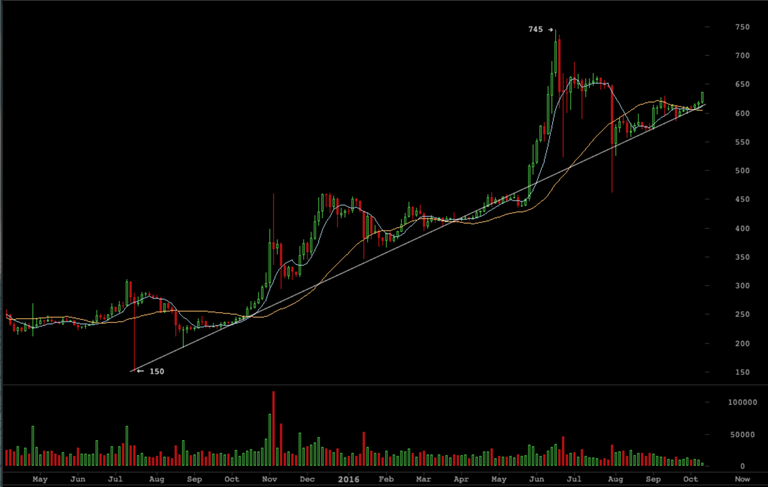The technology that makes the internet possible was developed in the early 1980’s. Mainstream adoption began only a decade later when the first web browser was released. Ten years after that many people came online for the first time with the advent of social media. User growth started out slowly but as web applications became more useful and user-friendly growth accelerated.

We can see a similar adoption trend occurring in blockchain-based digital currencies, specifically Bitcoin, the first and most well known. Bitcoin was invented in 2009 and was initially only understood by people with a technical background. Very few consumer-friendly applications have been created to date. Merchant adoption has been sluggish and there has been a lot of negative press regarding scams, money laundering and underground markets.

Bitcoin growth is set to become exponential, especially in Africa. There are a number of reasons for this. 80% of Africans do not have access to traditional banking services. Cross border remittance has very high costs with African corridors being the most expensive. Faith in central banks is exceedingly low particularly in countries like Zimbabwe and Nigeria. Africans understand the fragile nature of centrally governed financial systems and are eager to adopt alternatives. The global financial system itself is at risk with negative interest rate policies in the major economies and extremely high levels of government debt exposing its fragility. Bitcoin acts as a hedge against inflation and monetary control and more people will come to see this over the next few years as the existing system crumbles.
Interest in Bitcoin has been sidelined by blockchain or distributed ledger technology which underpins it. Over a billion dollars has been invested in companies, proofs of concept and projects which aim to exploit the technology. Many of these efforts will be in vain although there may be productive innovations that emerge. It is unclear at this early stage how blockchains will be incorporated into existing business processes. Business cases and appropriate use cases remain elusive. The only clear use case, and one that is actually in production, is a decentralised currency.
Developers and startup companies should focus on providing wallet apps and merchant integration solutions for the massive market that will be created as Bitcoin grows in popularity. This market will not be capitalised by incumbent payment solution providers. There is a fantastic opportunity for African entrepreneurs to create value for a continent that is about to begin a new chapter defined by economic growth and prosperity.